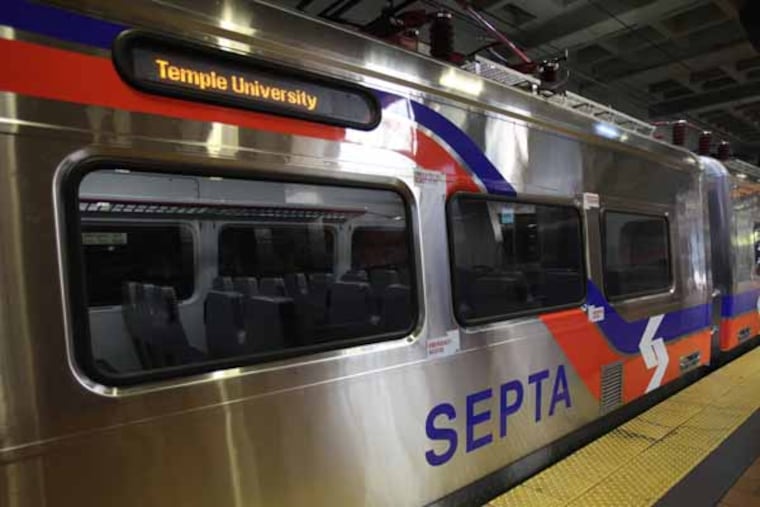SEPTA board approves fare increases
SEPTA fares will increase July 1, but the transit agency's new budget, supposed to take effect at the same time, is still undetermined.

SEPTA fares will increase July 1, but the transit agency's new budget, supposed to take effect at the same time, is still undetermined.
The SEPTA board on Thursday approved increases that will boost the bus, subway, and trolley cash fare to $2.25 from the current $2. The cost of a token will go to $1.80, up from the current $1.55.
Also on July 1, Regional Rail fare zones will change, with the current seven reduced to six. Zone 5, which includes distant suburban stations such as Yardley, Doylestown, Malvern, and Downingtown, will be eliminated.
The cost of a monthly Zone 3 rail pass will go from $155 to $163; the cost of a Zone 4 pass will go from $176 to $191.
By the end of the year, electronic "smart" cards are scheduled to replace tokens, passes, and transfers on subways, buses, and trolleys.
And by mid- to late 2014, Regional Rail travel is to be transformed by subway-style gates in Center City stations and electronic card-readers in the suburbs and on trains. At that time, the base cash fare will be raised again, to $2.50.
The combination of higher fares, a new electronic fare-collection system, and new boundaries for rail riders will be the biggest change in SEPTA operations in 30 years, since the opening of the Center City rail tunnel in 1984.
For senior citizens, free bus and subway rides and $1 train rides will be available only with the presentation of a state-issued photo identification card, such as a driver's license. SEPTA officials say they are in discussions with state officials to allow additional forms of ID for seniors.
The fare increases approved Thursday included some changes from the hikes as originally proposed.
A weekly pass that now costs $22 for bus and subway riders will cost $24 rather than the $24.50 originally proposed.
A monthly pass for bus and subway riders will increase to $91, instead of $92, from the current $83.
SEPTA reversed its call for an increase in the price of paratransit service, recommending that the cost remain at $4 per ride rather than increasing it to $4.50.
SEPTA also dropped its proposed ban on the use of bus and subway TransPasses on trains to Philadelphia International Airport, at least until smart cards are introduced on Regional Rail.
That change is designed to avoid a large price increase for airport workers, whose transportation costs would have more than doubled.
SEPTA's board also put off a scheduled vote on its proposed $1.3 billion operating budget, to pay for daily operations, and its $308 million capital budget, to pay for major construction projects and new vehicles.
SEPTA officials hope negotiations in Harrisburg on state transportation funding will provide enough additional subsidies to balance the agency's budget.
The proposed operating budget has $38 million more in costs than revenue, and the capital budget leaves many major projects unfunded, including the planned $100 million remake of the City Hall subway station.
Contact Paul Nussbaum
at 215-854-4587 or pnussbaum@phillynews.com.